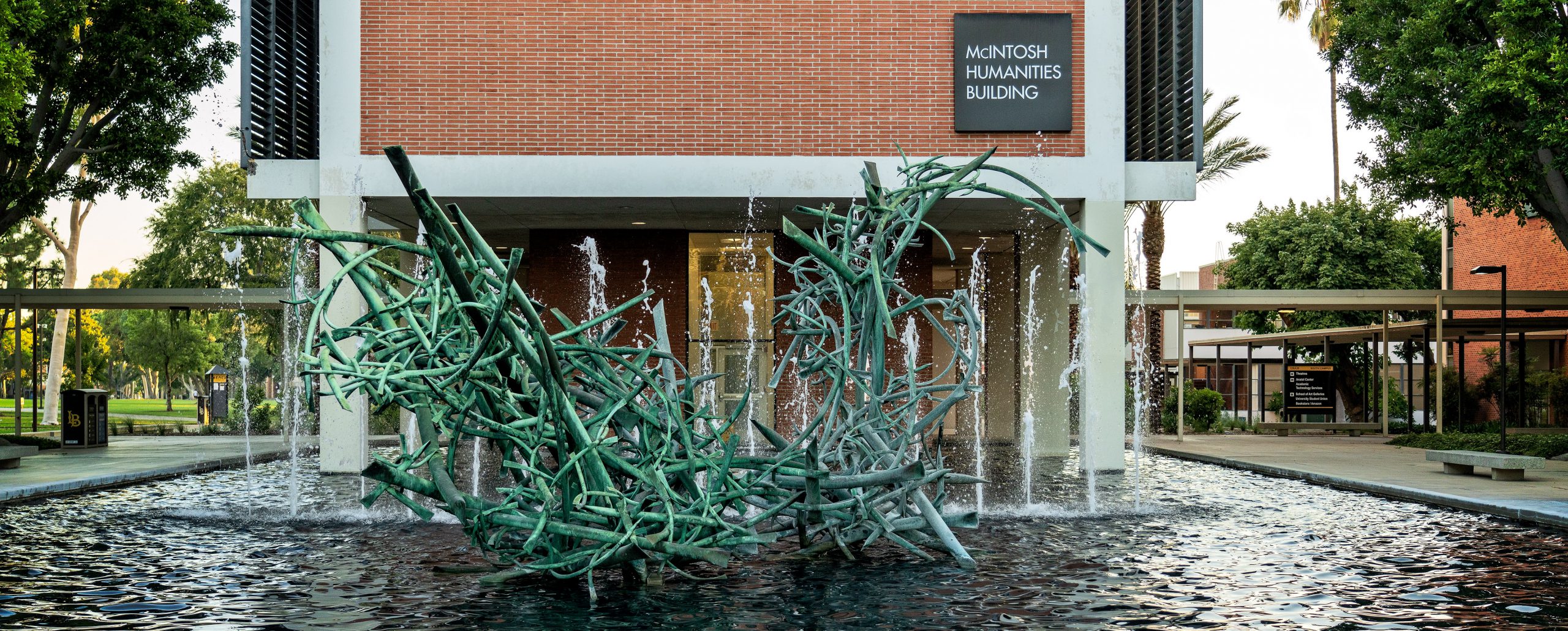NEH Grant Aids Berquist’s Research
February 2, 2015Originally Published: January 15, 2015

Emily Berquist
By Richard Manly
History’s Emily Berquist Soule recently received a grant of $50,400 from the National Endowment for the Humanities (NEH) to fund her research on the politics of slavery and antislavery in the late Spanish Empire.
“I’m really excited to be able to move forward on my second book,” said Berquist, who joined CSULB in 2007. “I’m ready to write it and it’s great to have the time to do it.”
The NEH grant comes as part of $17.9 million in grants this year for 233 humanities projects. Created in 1965 as an independent federal agency, the NEH supports research and learning in history, literature, philosophy and other areas of the humanities by funding selected, peer-reviewed proposals from around the nation.
Berquist hopes her second book, tentatively titled The Politics of Slavery in the Late Spanish Empire, will be a major contribution to the scholarship of the period with its overview of the political stance of the Spanish Empire towards slavery in the late 18th and early 19th centuries.
“What make the story really interesting were the paradoxical politics,” Berquist explained. “On one hand, the Spanish Empire was trying to become increasingly involved in the slave trade as the plantation economies developed in the Spanish Caribbean. On the other hand, there was a growing if small abolitionist movement in the Spanish Peninsula and some of the laws allowed by the Spanish government actually promoted anti-slavery sentiment and policies. For instance, the royal government officially allowed manumission or self-purchase by slaves. They also allowed slaves to keep plots of land for their own personal use. This book will explore the tensions between the promotion of slavery and the opposition to it.”
Berquist’s NEH grant will fund a full year’s leave from her teaching responsibilities with the goal of finishing her book’s first four chapters.
“So far, I’ve performed a third of the archival research I need,” she said. “I’ve made several trips to Spain to work in the archives in Madrid’s Naval Museum and Seville’s Archive of the Indies. Some of the most interesting documents I’ve found include a captain’s log that detailed an ill-fated expedition to found a slave depot off the west coast of Africa in what is today Equatorial Guinea. It was a disastrous mission that included everything from sabotage to mutiny.”
Berquist’s prior major research awards include $30,000 from the American Council of Learned Societies and a $50,000 Dibner Research Fellowship in the History of Science to fund a fellowship at the Huntington Library in Pasadena. A former Fulbright scholar, Berquist has also been awarded funding from the American Historical Association, the Atlantic History Seminar at Harvard University, the American Society for 18th Century Studies and the Spanish Ministry of Culture, among others.
Like all historians, Berquist uses a special skill set in her research.
“Academic Spanish is the foundational requirement, which I practiced by reading and studying Spanish Golden Age literature while in college,” she explained. “I’ve traveled and read complex documents but the most important skill is actually finding the documents. That takes time but it is a skill I have practiced for 10 years.”
She’s grateful to the History Department and the College of Liberal Arts for their support. “We’re very fortunate to be allowed to accept these research grants,” she said. “I’m grateful to both our outgoing and incoming chairs and to Dean (David) Wallace.”
Her first book, The Bishop’s Utopia: Envisioning Improvement in Colonial Peru, which appeared this year from the University of Pennsylvania Press, helped prepare Berquist to write her new book despite some real differences in the subject matter.
“However, the subject of my first book was a contemporary of the events I deal with in the second,” she said. “Bishop Martínez Compañón was a dedicated reformer who spent his entire life in Peru trying to help the indigenous people. He tried to improve their ability to work, their education and their living conditions. But as I continued my work on him, I realized that a third of the population of his bishopric was Afro-Peruvian—but he never mentioned them, much less tried to help them improve their lives. This got me thinking, why spend all this time reforming but never even mention people of African descent? What was the position of 18th-century Spanish reformers toward slaves and people of African descent? I found out that, basically, they had no position, not one they spoke of publicly, at least. The question that began my book was, why is there this void in the historical record that has been reflected in the scholarship? I think it came from tension between the economic interests the crown was trying to promote and a growing antislavery movement.”
She feels one reason the NEH recognized her research was the intriguing nature of her topic.
“In terms of scholarly literature, there is not yet a book that explores this subject for the late colonial period which represents a major hole in colonial Latin American scholarship,” she said. “This is an advantage for scholars working on colonial Latin America—it is not like studying colonial America where there are multiple takes on everything. We still have major holes in our understanding. A book like this fills those gaps and therefore serves both the classroom and other scholars.”
